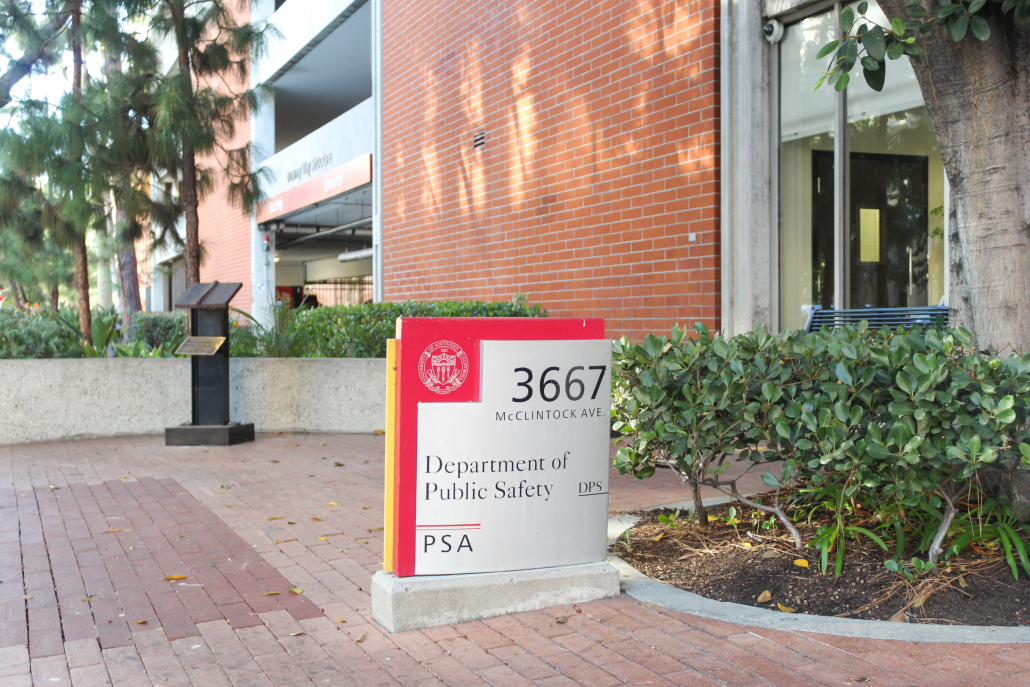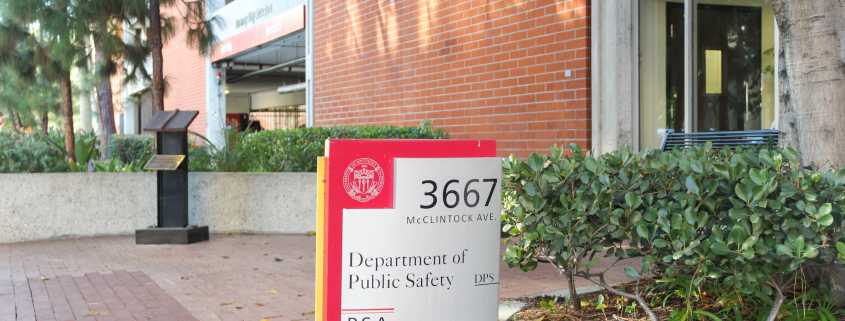DPS Community Advisory Board releases public safety recommendations

The Department of Public Safety Community Advisory Board released a report Wednesday with 45 recommendations for improving public safety at USC, including creating an independent DPS oversight body, sending alternatives to armed officers on nonviolent calls and ensuring that “sustained reports of bias” result in the firing of DPS officers.
The Board’s recommendations resulted from 10 months of meetings with over 700 people — community members, students, faculty and staff. Some advocated for the abolition of DPS, some supported DPS because of concerns about crime on and around campus and others fell somewhere in the middle, both concerned about safety and unjust DPS tactics.
A separate group will determine how the University can implement the Board’s recommendations, and plans will either be approved or rejected by President Carol Folt and the Board of Trustees.
The board — comprising of academics, activists, students, staff members, DPS officers and DPS Chief John Thomas — was formed after last year’s mass Black Lives Matter protests, when community members and USC students spoke up about the racism that many have experienced at USC, including racial profiling by DPS.
The Instagram page @black_at_usc, an account in which USC students, faculty, staff and alumni anonymously shared their experiences of racism and microaggressions at USC, issued a list of demands to USC administration, including divesting from DPS and severing ties with the Los Angeles Police Department. USC faculty sent a letter last July to Folt and Thomas requesting divestment from DPS.
The report proposes two general recommendations: “to re-envision public safety and to create an independent DPS oversight body.”
The proposed DPS independent oversight body would review complaints made against DPS, evaluate the annual budget for “community safety and protection,” review and analyze stops made by DPS and oversee future use of new technology used by DPS or other campus safety forces.
“What [the independent oversight body] is going to give us is a level of transparency and a greater level of accountability. And that’s what people want,” Erroll Southers, co-chair of the Board and professor of the practice in national and homeland security, said in an interview with the Daily Trojan.
The report also examined the potential for alternatives to armed DPS responses to nonviolent calls. DPS currently serves as the only 24-hour agency on campus and the only resource for issues ranging from potential crimes to dorm lockouts to mental health checks to parking violations, the report said. If Folt and the Board of Trustees implement the report’s recommendations, other organizations could function for 24-hours as well.
“As we think about, specifically around mental health and wellness checks … one of the reasons why DPS gets involved is because those don’t happen on an eight to five schedule … So I think that would be an area where, again, we might have some expansion,” said Ange-Marie Hancock Alfaro, co-chair of the board and Chair of Political Science and International Relations at the USC Dornsife College of Letters, Arts and Sciences, in an interview with the Daily Trojan.
In addition to mental health calls, the report also recommends that noise complaints, check-ins on students and community members and “non-violent alcohol related infractions,” could be moved to different organizations, altering the funding that DPS receives.
“Funding directly related to these duties should be proportionately allocated to the necessary entities based on the amount and intricacy related to them,” the report read.
Thomas and DPS Assistant Chief David Carlisle said in interviews with the Daily Trojan that they are supportive of the report’s findings, including shifting responsibilities from DPS to other organizations.
“Because we are 24/7 emergency first responders, a lot of times we’re asked to do things that other people may be better qualified to handle,” Carlisle said. “Wouldn’t it be nice to have a mental health professional available to respond either themselves or with us to address that crisis?”
In the sessions, DPS officers, some of whom have worked for other law enforcement agencies in the past and some who just started working as an officer, stressed the difference in policing for a municipality and campus. Because of that difference, the Board recommended changing the DPS officer job description and increasing the qualifications for the job, however Southers and Alfaro did not offer specifics on how the job description will be changed.
The Board also recommended increasing benefits to officers through increased focus on compensation, retirement structures, officer wellness and retention so that DPS can be a career destination rather than a starting point for future careers in law enforcement.
“[DPS officers] recommended to us that we rewrite the job descriptions to make the requirements a little bit higher, to also change the compensation structure, so they don’t lose good people,” Alfaro said. “And also, frankly, to deter some of the other folks who are maybe just looking for a weigh station.”
USC faced criticism this year for their pattern of hiring officers with prior records of misconduct, including records of shootings, excessive force and racist comments. Under the Board’s recommendations, officers with records of misconduct would not be hired by DPS, and DPS would have to take additional steps to reduce profiling and promote officer accountability.
Those who interact with DPS would be able to share feedback on the interaction through a QR code. Data would be collected on the percentage of officer stops in which the person stopped is found to be “engaging in criminal activity,” allowing evaluation of whether or not accusations of “sustained reports of bias” are fair and should result in officer termination. DPS would create a log for officers to upload interactions that they initiate, which often go unrecorded.
“We don’t know how many people are being stopped. And you may be that person that files a complaint that that officer stopped then never made a record of it,” Southers said. “That’s where we need to start. And then we can get to how many of those stops ‘fit our definition of profiling.’”
The report also highlighted community member concerns, such as the disparity between the treatment of USC students and South Central residents regarding drugs and alcohol. Some USC students — particularly marginalized students — said in sessions with the Board that their alcohol and drug use is scrutinized more than it is for other students, Alfaro said.
The board recommended that USC clarify a standard for alcohol and drug related infractions as a way to enhance transparency.
“DPS needs to be really clear: Is the standard that we’re going to refer you to [the Student Judicial Affairs and Community Standards]?” That we need to be transparent about, that’s what the referral is,” Alfaro said. “And it’s not referral for criminal charges, it’s not a referral for a misdemeanor or drinking underage.”
There is a long history of racial profiling and discrimination accusations against DPS, most recently documented on the @black_at_USC page. Black students recounted stories of being disproportionately stopped to show IDs and being viewed as “suspicious” while simply “standing in their own backyard[s],” according to posts last June.
In 2013, a party attended predominantly by Black USC students was shut down by LAPD officers in riot gear with helicopters flying overhead — and DPS officers present — resulting in the arrest of multiple students and accusations of racism. Students later held a sit-in to protest the response, holding signs that read “We are scholars not criminals,” according to an NPR article.
The relationship between LAPD and USC has also faced scrutiny, with @black_at_usc and campus organization Reimagine Public Safety requesting that USC sever LAPD ties, although the report’s legal analysis found that USC does not have the legal authority to ban LAPD from the campus.
Community members have also consistently expressed concerns about profiling and racism at the hands at DPS. A 2013 article in StreetsBlog LA documented nearly 50 reports of community members who said that they had been “harassed, insulted, stopped, and sometimes even frisked and handcuffed,” by DPS and LAPD.
However, given the current climate in the United States and the level of engagement the Board received, Southers and Alfaro are confident that the Board’s recommendations will be taken seriously by the USC administration.
“When [Folt] met with each of us, she was very clear that she wanted to do something. This was not something that was just gonna sit on a shelf,” Alfaro said.

